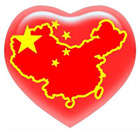Foreign and Military Affairs
Co-op boosts developing nations' role in global affairs
(Xinhua)
Updated: 2010-04-15 13:03
 |
Large Medium Small |
NEW DELHI - The cooperation between China and India points to the fact that developing nations can play a bigger role in world affairs if they work together, a Chinese diplomat said.
"As long as emerging countries like China and India strengthen cooperation, they can exert more important and constructive influence on international affairs," Zhang Yan, China's ambassador to India, said in a recent interview.
Zhang spoke ahead of the April 15-16 summit of the four BRIC emerging powers -- Brazil, Russia, India and China -- in Brasilia.
Cooperation among the developing countries will help advance their interests as a whole, Zhang said.
As an example,the ambassador pointed to the close coordination and cooperation between China and India during last year's UN climate summit in Copenhagen.
Zhang said that cooperation played an important role in guaranteeing positive results at the summit and in protecting the legitimate rights and interests of the developing countries.
The two Asian giants have also carried out fruitful cooperation on many issues within the frameworks of the BRIC, BASIC and G-20, the diplomat said.
That cooperation ranged, he said, from work on the global financial crisis, climate change, and the pursuit of a multi-polar world structure to the democratization of international relations and the protection of the rights and interests of all developing countries.
"Both China and India are watching each other's development closely," Zhang said.
In India, he said, more and more people call for strengthening bilateral cooperation and believe it will lead to a win-win situation.
Meanwhile, China has worked hard to explore all channels to enhance exchanges, increase understanding and expand trust with India, Zhang said.
The diplomat noted that the two countries tackled the global financial crisis much better than did some developed nations, which he said shows that both have stable, firm and effective ways to manage their economies.
China and India, Zhang said, both have fast-growing economies with big domestic markets. The two countries need to advance their cooperation, wisely handle friction, avoid protectionism, and complement each other's weak points in order to achieve a win-win situation, he said.
Optimistic about the prospect of the China-India relationship, the ambassador predicts that the relationship will remain on a sound track and "progress steadily" this year.
He said the two countries recently celebrated the 60th anniversary of their diplomatic ties and an "India festival" was launched in China during Indian Foreign Minister Somanahalli Mallaiah Krishna's recent trip to Beijing. A "China festival" will also be held in India soon, Zhang said.
The ambassador said one of the priorities of his job is to promote China-India cooperation on global affairs, including within the BRIC framework.
He stressed that if the task of trust-building can be finally accomplished, then the two nations can solve any problem between them with much broader room for cooperation.
The goal of making the 21st century an "Asian century" will fall short unless both China and India are fully developed, the diplomat said.












